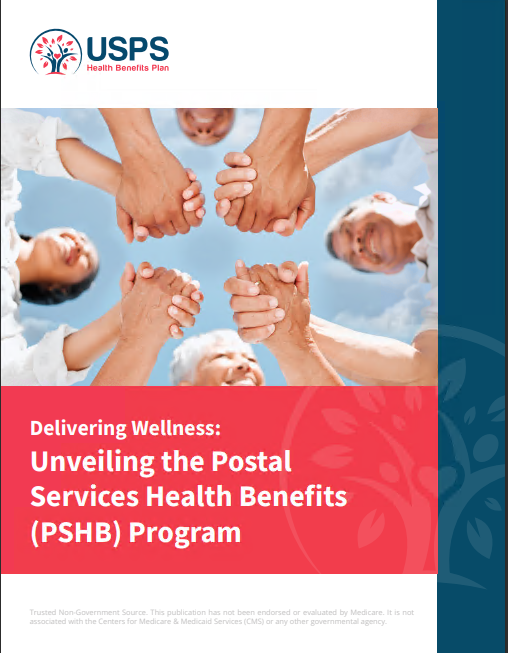Key Takeaways:
- Missing important PSHB enrollment deadlines can lead to gaps in coverage, penalties, and limited options.
- Knowing the key deadlines and taking timely action ensures uninterrupted access to vital healthcare benefits.
Forget to Enroll? Here’s What Happens When You Miss Key PSHB Deadlines
Navigating federal health benefits, like the Postal Service Health Benefits (PSHB), can be tricky, especially when it comes to enrollment deadlines. Missing these deadlines may not only lead to unexpected interruptions in coverage but could also result in penalties and fewer enrollment options. In this article, we will explore what happens when you miss crucial PSHB deadlines, how to avoid common pitfalls, and tips for ensuring you stay informed about important dates.
Understanding the Postal Service Health Benefits (PSHB)
The Postal Service Health Benefits (PSHB) program provides healthcare benefits to postal employees, retirees, and their eligible family members. While this program is designed to offer comprehensive coverage similar to the Federal Employees Health Benefits (FEHB) program, PSHB has its unique eligibility rules and deadlines. Missing key enrollment periods can severely impact access to these healthcare services.
Why Are PSHB Deadlines Important?
PSHB deadlines are crucial because they dictate when you can enroll, change, or update your health coverage. These deadlines include:
- Initial Enrollment Period (IEP): The first opportunity to sign up for PSHB, typically when you first become eligible.
- Open Season: A yearly opportunity to review and make changes to your plan.
- Special Enrollment Periods (SEPs): These apply in certain life-changing circumstances such as marriage, divorce, or retirement.
Each of these periods plays a critical role in ensuring that you have the coverage you need, when you need it. Failing to take action during these times can have serious consequences.
What Happens If You Miss the PSHB Initial Enrollment Period?
If you miss your Initial Enrollment Period (IEP), it can result in a delayed start to your coverage. The IEP is often your first chance to enroll in PSHB when you become eligible, usually within a specific window that begins when you first join the postal service or experience a qualifying life event.
When this deadline passes without action:
-
Delayed Coverage: Missing the IEP may result in a significant delay in receiving healthcare coverage. Depending on the situation, you might have to wait for the next Open Season to enroll, which could be months away.
-
Limited Coverage Options: Outside of the IEP, your plan options might be more limited. You could miss out on selecting a plan that better suits your healthcare needs.
-
Potential Penalties: In some cases, there may be penalties involved for not enrolling when first eligible. This could affect future premiums and overall costs of healthcare coverage.
Special Enrollment Periods: Your Next Best Option
If you miss the IEP, you might still qualify for a Special Enrollment Period (SEP). SEPs allow you to enroll in or change coverage outside of the typical enrollment windows if you experience qualifying life events, such as moving to a new coverage area, getting married, or the birth of a child. However, SEPs have their deadlines too, so it’s essential to act quickly once you qualify.
What If You Miss the Open Season?
Open Season is a critical time each year when eligible members of the PSHB can enroll, renew, or make changes to their healthcare plans. Missing this period can lead to significant consequences, including:
-
Being Locked Into Your Current Plan: If you fail to take action during Open Season, you will automatically be re-enrolled in your existing plan. This may not seem problematic, but if your healthcare needs have changed or if your current plan no longer meets your needs, you could be stuck without appropriate coverage until the next Open Season.
-
Missing the Opportunity to Add or Remove Dependents: During Open Season, you can make changes to dependent coverage. If you miss this window, adding or removing dependents becomes much more complicated, often requiring a qualifying life event.
-
Limited Financial Flexibility: Open Season often provides opportunities to choose a plan that may better suit your financial situation or healthcare needs. Missing this window could mean you’re locked into a plan with higher out-of-pocket costs than you can comfortably manage.
Consequences of Ignoring Open Season
The consequences of missing Open Season could last for the entire next calendar year. You may end up with inadequate coverage or higher-than-expected costs for services, as well as limited options to make necessary changes to your plan. Given the fast-paced nature of healthcare expenses, this oversight can be a costly mistake.
Retirees and Missing Key Deadlines
Retirees under PSHB are particularly vulnerable to missing deadlines because their circumstances often change. Transitioning from an active postal employee to retirement comes with its own set of enrollment periods and deadlines. Retirees must pay special attention to:
-
Post-Retirement Enrollment Options: Missing the post-retirement enrollment window could leave you without coverage.
-
Coordination with Medicare: Some retirees may need to coordinate their PSHB benefits with Medicare once they become eligible. Missing deadlines related to Medicare coordination could result in higher costs or gaps in coverage.
Potential Impact on Dependents
For retirees with family members enrolled under their plan, missing the deadline to update or change coverage could have far-reaching effects. Dependents may lose their eligibility, or the retiree could face additional penalties for not enrolling family members at the appropriate time.
Special Enrollment Periods: Your Lifeline for Missed Deadlines
Special Enrollment Periods (SEPs) are one of the best solutions for individuals who miss standard enrollment periods. SEPs are triggered by specific life events, such as:
- Getting married or divorced
- Having a child
- Moving to a new coverage area
- Losing other qualifying health coverage
These events open a window of time during which you can enroll in or change your coverage. However, SEPs have their own strict deadlines, usually requiring action within 60 days of the qualifying event. Failing to act during an SEP means you may have to wait until the next Open Season to make any changes.
How to Avoid Missing Deadlines
The best way to avoid the stress and complications of missed deadlines is by staying organized and proactive about your health coverage. Here are some practical tips to ensure you don’t miss crucial PSHB deadlines:
-
Set Calendar Alerts: Mark all important enrollment periods in your calendar, including Open Season and IEP dates.
-
Sign Up for Notifications: Many federal agencies and health programs offer email or text alerts to remind you about upcoming deadlines. These reminders can help you stay on track.
-
Review Your Coverage Annually: Even if you’re satisfied with your current plan, review your coverage each year during Open Season to ensure it still meets your needs.
-
Keep Documents Handy: Always have your paperwork and documents ready in case you need to enroll during an SEP or at another time.
By staying organized and aware of important deadlines, you can avoid the potentially costly consequences of missed enrollments.
Final Thoughts: Missing Deadlines Can Be Avoided
Understanding and adhering to PSHB deadlines is critical to maintaining consistent healthcare coverage. Missing an enrollment window can lead to delays, increased costs, and limited options. The key to avoiding these issues is to stay informed, proactive, and organized when managing your health benefits. If you miss a deadline, explore options such as Special Enrollment Periods to mitigate the impact.
Contact Information:
Email: [email protected]
Phone: 9495555678











